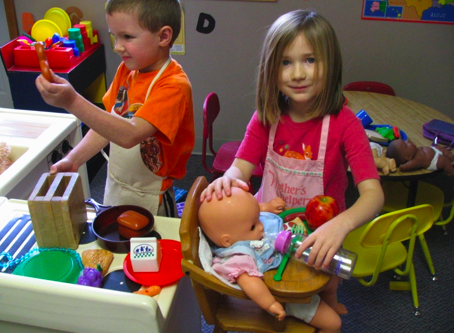“Purposeful Play”
Lev Vygotsky, a Russian psychologist, who made a huge contribution to child development, believed that through playing and imagining, children could further stretch their conceptual abilities and knowledge of the world.
Types of play that can further learning include imaginary play, role-playing, games, and re-enactments of real events.
Play Matters
Play is important. It’s how children learn about themselves and the world around them. Giving a child the opportunity, time, and space to play allows them to explore different interests and passions.
Through play, children can develop important life skills that can help prepare them for experiences later in life.
Play also helps Executive Function and Self-Regulation skills to develop. We learn how to control our emotions in play. Play is all about having fun! But play is so much more than just a fun activity.
While playing, children learn and develop important skills that they will continue to use throughout their lifetime. Problem solving, creativity, and willingness to take risks are just a few of the skills developed through play.
SKILLS LEARNT THROUGH PLAY
- Problem solving
- Creativity and imagination
- Interacting with others and negotiating
- Resilience
- Flexibility and adaptability
- Willingness to take risks and try new things
- Processing emotions
- Understanding social situations
- Discovering interests
- Building confidence
PLAY AND LANGUAGE DEVELOP TOGETHER. WHEN ONE IS DELAYED, THE OTHER IS OFTEN DELAYED TOO SO PLAY SKILLS AND LANGUAGE SKILLS GO HAND IN HAND.
So, let’s get playing!
Rosie Gardner


